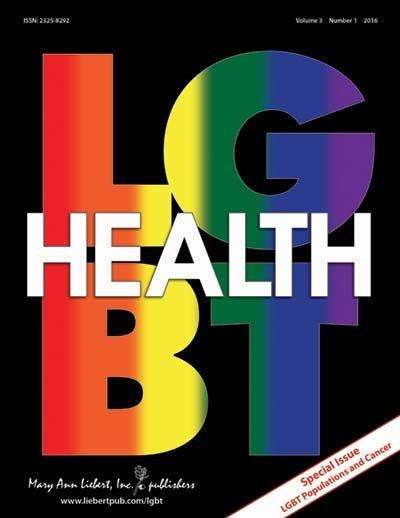Credit: ©Mary Ann Liebert, Inc., publishers
Appropriate data collection, staff training, LGBT patient education, and nondiscrimination policies are all needed now that the federal government has required that electronic health records (EHR) systems certified under the Meaningful Use Incentive Program be capable of collecting information on patients' sexual orientation (gay, lesbian, or bisexual) and gender identity, "an historic move that will advance health" for the LGBT community, according to an article in LGBT Health.
The article "Inclusion of Sexual Orientation and Gender Identity in Stage 3 Meaningful Use Guidelines: A Huge Step Forward for LGBT Health" encourages providers to collect sex assigned at birth data as well. Authors Sean Cahill, PhD, Fenway Institute (Boston, MA), Kellan Baker, MPH, Center for American Progress (Washington, DC), Madeline Deutsch, MD, MPH and Joanne Keatley, MSW, University of California at San Francisco, and Harvey Makadon, MD, Fenway Institute and Harvard Medical School (Boston), discuss the importance of recording these data correctly. They also emphasize the need to use these data to provide quality care that meets the unique health needs of subpopulations within the LGBT community and helps to delineate and reduce LGBT health disparities.
"The authors concisely lay out the important opportunity presented by the new requirement for certified EHRs as well as the complex issues that must be considered in eliciting and recording sexual orientation and gender identity data," says LGBT Health Editor-in-Chief William Byne, MD, PhD, Icahn School of Medicine at Mount Sinai, New York, NY. "The organizations the authors represent have developed resources to assist providers and clinical staff toward these ends."
More information: Sean R. Cahill et al. Inclusion of Sexual Orientation and Gender Identity in Stage 3 Meaningful Use Guidelines: A Huge Step Forward for LGBT Health, LGBT Health (2015). DOI: 10.1089/lgbt.2015.0136
Provided by Mary Ann Liebert, Inc























